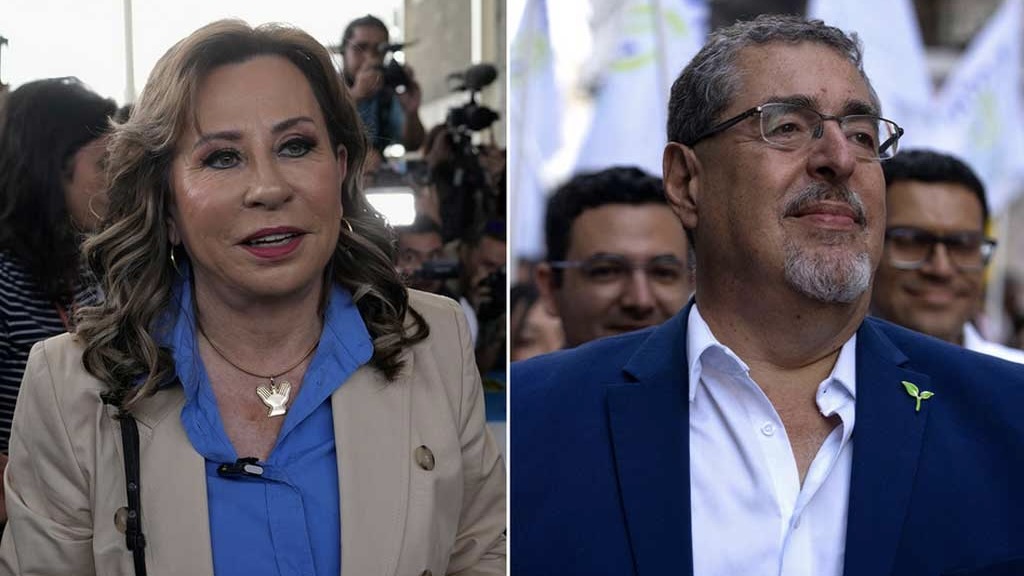The post-election crisis in Guatemala intensified further on Wednesday, July 12, when the country’s Supreme Electoral Tribunal (TSE) confirmed the results of the June 25 presidential election just minutes after the Prosecutor’s Office suspended the legal status of the second-place party.
The TSE confirmed that Sandra Torres of the center-right National Unity of Hope (UNE) party that won 15.9% of the votes and Bernardo Arévalo of the centrist Semilla Movement party that won 11.8% of the votes would advance to the run-off on August 20. The president of the TSE, Irma Palencia, said that both candidates can start their respective campaigns, adding that the electoral process is backed by the Constitution.
Palencia reported that the TSE had not yet been notified by the Prosecutor’s Office of the suspension of the legal status of Semilla. In response to the repeated questions from the local press about the concerns of the population over the Prosecutor’s Office’s decision, she urged the citizens to “remain calm” and “have faith in the rule of law.”
Minutes before the TSE’s announcement, the Special Prosecutor’s Office against Impunity (FECI), through a video statement on Twitter, announced that the legal status of the Semilla party had been suspended. Prosecutor Rafael Curruchiche reported that the decision had been made based on a criminal complaint against the party.
Curruchiche said that in May 2022 a citizen reported having his signature falsely added to a signature-gathering effort by the Semilla Movement to establish itself as a party. This led the FECI to initiate an investigation. He added that the office’s investigation also found the signatures of 12 deceased people on the list. The prosecutor said that the party had needed at least 25,000 signatures to register itself legally, and claimed that there had been indications that more than 5,000 signatures were illegally gathered.
The contradictory announcements intensified the uncertainty over the possibility of a run-off vote between Torres and Arévalo. For the past two weeks, the announcement of the official results, which came more than fifteen days after the citizens went to the polls, had been halted by the order of the Constitutional Court. On July 2, the Constitutional Court ordered the results from the first round of presidential elections to be reviewed after a joint appeal by the UNE and eight other parties, expressing doubt in the surprise second-placed runner.
According to Guatemalan electoral law, no political party can be suspended while elections are still underway. Since no candidate secured more than 50% of the votes in the first round, it seems that Semilla could not be suspended.
Arévalo condemned the FECI’s decision and deemed it as a maneuver to keep him out of the presidential race. He also announced that he would challenge the party’s suspension and that it would not stop him from participating in the run-off.
The electoral process in Guatemala had already been strongly criticized by international and national organizations due to the delay in official results and the earlier suspension of other popular presidential hopefuls before the June polls.
The candidates who were blocked on dubious grounds before the elections had accused the authorities of using the electoral and judicial system to reduce competition for candidates acceptable to the establishment. They had also argued that such decisions prevent the elections from being free and fair and provoke electoral fraud.
It is important to note that in third place is Manuel Conde of the ruling far-right Vamos party with 7.8% of the votes. Additionally, it is worth highlighting that in the 2019 electoral process, Torres won the first round, but lost the second round to the incumbent president Alejandro Giammattei of the Vamos party.
Social organizations call for the officialization of the results
A few hours after the TSE made the results official, social organizations grouped in the Mirador Electoral platform said in a statement that the FECI’s decision to suspend the Semilla was “illegal” and urged the TSE to “ignore” it.
The platform stressed that article 92 of the Electoral and Political Parties Law establishes that “a party may not be suspended after an election has been called and until it has been held.”
The group also cited article 156 of the Political Constitution of the Republic of Guatemala regarding “Non-binding of illegal orders,” and highlighted that it establishes that “No public official or employee, civilian or military, is obligated to comply with orders that are manifestly illegal or that imply the commission of a crime.” Consequently, it called on the TSE to “officialize as soon as possible the electoral results in favor of the political parties UNE and Semilla, ignoring an openly illegal resolution that attempts to consummate an electoral coup equivalent to a coup d’état in the country.”





